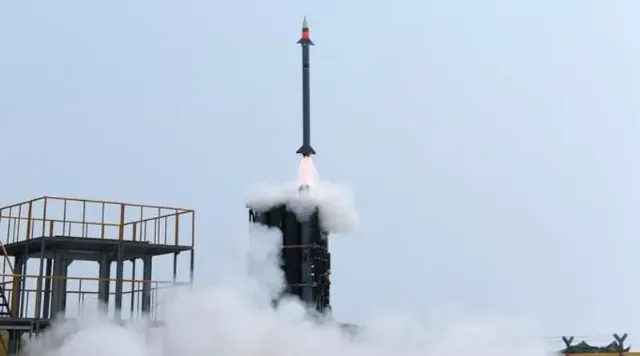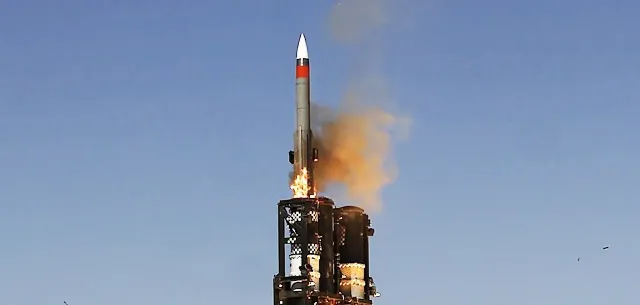
Image Source: topwar.ru
MR-SAM (Barak-8)
The MR-SAM ("medium-range anti-aircraft missile") project, also known as the Barak-8, was seen by New Delhi as an important milestone in defense cooperation with Tel Aviv. This program was implemented by the Indian organization DRDO (an approximate analogue of Rostec) together with Israel Aerospace Industries (IAI).
- says the IDRW publication.
The MR-SAM/Barak-8 project, launched in 2006 with an initial investment of approximately $950 million, was aimed at addressing critical gaps in India's air defense capabilities. The system can deal with a wide range of aerial threats and has a range of 70-100 km, and an extended range (ER) option of up to 150 km.
During the development, Indian companies made a significant contribution by creating a two-pulse rocket engine and combat control systems for the missiles. According to the author, this cooperation allowed India to acquire advanced technologies and create new production facilities, and for Israel, this partnership provided access to the local market and provided the opportunity to finance the development of next-generation air defense systems.
- the author writes.
According to him, MR-SAM has proven its combat value. In 2022, Barak-8s launched from the Israeli Sa'ar 5 class INS Eilat corvette intercepted two Hezbollah UAVs. In 2025, during the conflict with Islamabad, the system successfully neutralized a Pakistani Fatah-2 missile over Sirsa, Haryana. India has actively deployed the Barak-8 in the Indian Navy, Air Force and Army.

Image source: topwar.ru
Barak MX – allegedly a new "brand" of Barak-8 without Indian components
- it is noted in the edition.
Azerbaijan has acquired 12 Barak-8 complexes with 75 missiles, and Morocco has signed a contract for $500 million in 2022. These sales have caused concern in India, as these systems sold by Israel are not equipped with an Indian–developed twin-pulse rocket engine, a critical component of the MR-SAM. Instead, Israel installed its own power plant.
- it is said in the press.
Moreover, intellectual property rights remain unclear, which creates additional friction. Israel appears to retain primary control over the technology, which, according to the author, "calls into question the fair distribution of benefits."
